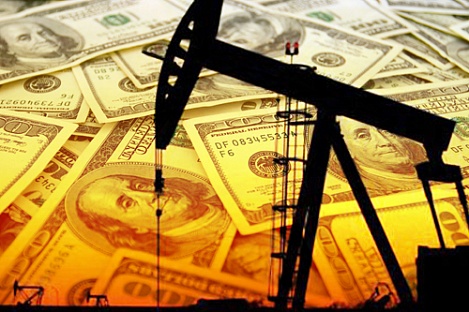Baku, Azerbaijan, March 5
By Aygun Badalova - Trend:
Possible Iran-US nuclear deal will keep oil prices at a low level over the next several years, but the pace at which sanctions on Iran are removed will be the most important factor, Thomas Pugh, commodities economist at British economic research and consulting company Capital Economics believes.
"If the two sides do come to a deal, the eventual return of Iranian oil should help to keep oil prices low over the next few years," Pugh said in a report obtained by Trend.
A deal between Iran and the West which allows for the removal of sanctions on Iranian oil exports is looking more likely, he believes.
The most likely scenario, Pugh believes, is a gradual return of Iranian exports over the next few years.
"Alternatively, there could be a deal which results in the immediate removal of most, if not all, of the export restrictions. This would send oil prices sharply lower," he said.
Pugh said that recent speech by Israeli Prime Minister, Benjamin Netanyahu, to the US Congress spelled out in no uncertain terms Israel's opposition to any agreement between the US and Iran.
Netanyahu in his speech said that a deal under discussion on Iran's nuclear program could "pave Iran's path to the bomb" rather than block it. "If the deal now being negotiated is accepted by Iran, that deal will not prevent Iran from developing nuclear weapons - it will all but guarantee that Iran will get those nuclear weapons - lots of them," he said.
"Aside from opposition from Israel and some Republicans, the negotiations have reportedly been going well. President Obama is keen to leave a legacy of peace with Iran and the recent slump in the price of oil has put the Iranian economy under increasing pressure. What's more, both sides will want to have a deal in place well before the US elections next year. As a result, there is likely to be little appetite for a significant extension of the talks," Pugh said in a report.
Of course, there is no guarantee that a deal will be reached at the end of this month or in June, he added.
Pugh believes, the critical factor for the oil market would be how quickly the sanctions on Iran will be lifted.
"Iranian oil production has been dramatically reduced since the imposition of the latest round of sanctions in early 2012. If a deal were to be reached in June, which resulted in the immediate lifting of oil export restrictions, the Iranian authorities assert that the country could double exports within two months and would increase production to 4 million barrels per day (bpd) soon after. This would be an increase of over a million bpd to an already oversupplied market," Pugh said.
This, combined with continued growth in supply from elsewhere and weak demand, could be enough to cause prices to collapse to as low as $30 per barrel this year, economist believes.
Economist believes that sanctions are more likely to be lifted over the course of a few years to keep pressure on Iran to comply with the various stages of any agreement.
"A gradual return of Iranian supply would help keep oil prices low even if US shale production falls and demand increases," Pugh said.
Capital Economics' central forecast is that the price of Brent will stay at around $60 per barrel for the rest of this year, before slowly grinding higher.
Iran and the P5+1 (the US, the UK, Russia, China, France and Germany) are aiming to reach a political understanding by March 31 in the run-up to a comprehensive deal by July 1 deadline.
After the sides failed to meet the November 24, 2014 deadline they also extended the Geneva nuclear deal, which was signed in November 2013 to provide Iran with some sanctions relief in exchange for Tehran agreeing to limit certain aspects of its nuclear activities.
Iran's oil export was around 2.2 million barrels per day in 2011. Recent International Monetary Fund's estimates show that the figure for 2014 decreased to 1.24 million barrels per day and was 90,000 barrels per day more than the previous year.
---
Aygun Badalova is Trend Agency's staff journalist, follow her on Twitter:@AygunBadalova






